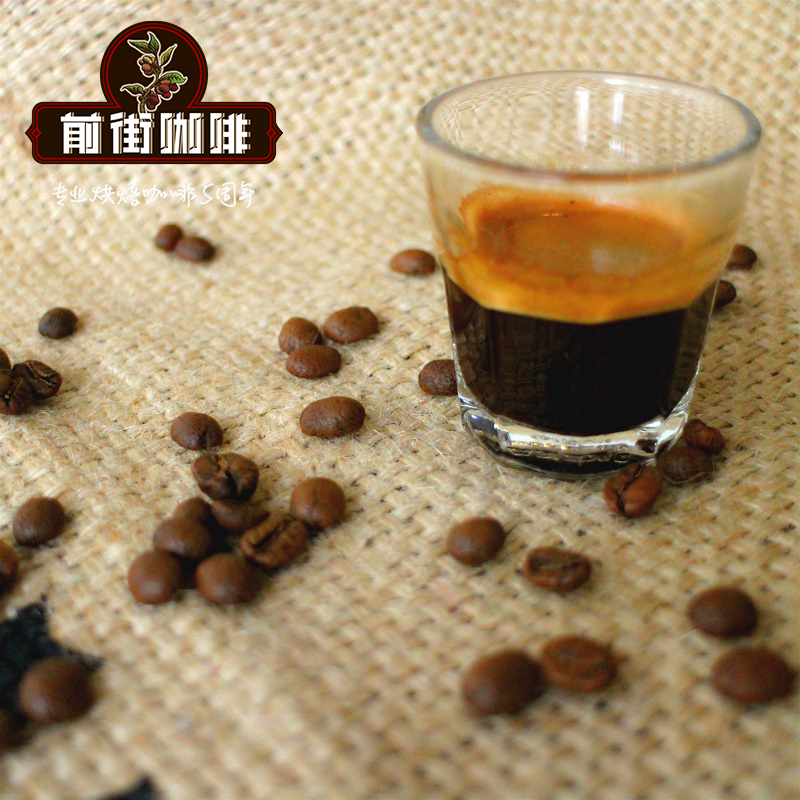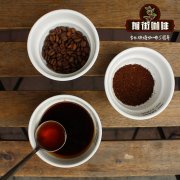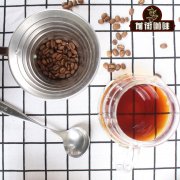Burmese Coffee Map introduction of Burmese Coffee varieties what kind of coffee is there in Myanmar?

Professional coffee knowledge exchange more coffee bean information please follow the coffee workshop (Wechat official account cafe_style)
Burma began to grow coffee beans in 1885, but there has been no export or obvious commercial trace for nearly a hundred years.
In the middle and late 20th century, the United Nations Drug abuse Control Program (UNDCP) began to promote coffee cultivation in order to encourage Burmese farmers to give up opium poppy cultivation.
However, during this period, because of the huge profits of the original drugs and the substantial control of the junta, although many farmers joined the program to earn subsidies for growing coffee, they were actually still growing opium poppies.
Nevertheless, as of a few years ago, Myanmar had 100,000 acres of coffee fields, more than half of which were near Southern Shan State and Wacheng.
Regardless of Myanmar's current coffee processing technology, large areas of natural shade forests and low-pollution natural environment, give Myanmar the potential to achieve quality coffee.
Burmese agricultural officials also plan to send agricultural experts around the world to search for suitable varieties and retrieve plants and seeds.
Myanmar can find many well-known bean varieties, H528, Catual, SL34, S795, Blue Mountain and the best quality S795, which are enough to compete with common traditional varieties.
Burma Coffee Map actually began to collect information at the same time as Sri Lanka Coffee Map in October 2006, when it was chosen to go to Sri Lanka first. Over the past 10 months, after the changes of relatives and work and personal chores, Sri Lanka was only done in March, and then it took almost five months to finish this article.
At first, it was intended to express the coffee production areas and profiles of various countries in the form of maps, focusing on the map part. Because writing must involve textual research, it is not my specialty. I am afraid that it is often erroneous and inappropriate, so it is only a simple explanation. Unexpectedly, the map can only be drawn according to the narrative before it still has to be widely read and translated into words. Therefore, since the last article in Sri Lanka, "Coffee Map" has become more and more.
The extra text does not all focus on coffee, but involves humanistic materials such as geography and history. Since I took the time to read the materials, I gave up the Coffee Map because I didn't need it, and I completely forgot it in the future. that's a pity, so I compiled it and wrote it at the same time.
Myanmar, which is quite far away from Taiwan, usually has nothing to do with it. How can I know that after collecting information, stories with deep tension hit my heart one after another. In fact, it is inappropriate for me to describe these materials as "stories", because there is a condensation of blood and tears in all events. In the final analysis, the war caused by human selfish desires and power ambitions distorts the family dreams of too many people!
In Myanmar, there are still many materials to write about, such as the "WA Special Zone", the "Kokang Special Zone" and the "fourth Special Zone" in the Golden Triangle. Wait, wait,
More than a decade ago, there were female colleagues from Yunnan from Myanmar, whose special accent is still in my ears and haven't been seen for a long time. How are you these days?
A brief history of Burma
In the past, we were catchy: "the capital of Myanmar is Yangon."
But on November 7, 2005, the Burmese government suddenly announced the relocation of the capital to Pyinmana, even the new capital is called "Nay Pyi Taw", which is understood to mean "imperial capital". Today, Myanmar is a country under a military dictatorship, with almost all key officials and leaders held by generals. The relocation of the capital is such a major event that you can secretly plan and then act quickly.
Myanmar is ethnically complex due to the barrier of mountains and rivers and rugged terrain. In 1886, Britain occupied the territory, merged into India under the Great British Union, and became a province of India. In 1937, Myanmar broke away from the Indian Empire and became the Burmese headquarters of the British Empire. In World War II, in 1942, the Japanese captured Burma, Japan was defeated in 1945, and Britain continued to own Burma. In 1947, Burmese headquarters leader Aung San led the leaders of the ethnic minority state (state) to fight for independence from the British Empire. On January 4, 1948, the Union of Myanmar was established. Since then, Myanmar has experienced a series of political struggles and soldiers to seize power, which has not stopped so far. In 1989, the Burmese authorities changed the name of their English country Union of Burma to Union of Myanmar. On November 7, 2005, due to strategic thinking, the Government of Myanmar announced the relocation of the capital from Yangon to Naypyidaw.
The "Aung San Suu Kyi" we often hear about in the media is the daughter of Aung Shan, who was assassinated shortly after fighting for independence. Aung San Suu Kyi studied in Britain and later returned home to advocate democracy by non-violent means. In the 1990 general election, her "National League for Democracy" won an absolute majority and was supposed to become Myanmar's prime minister, but the military refused to hand over power, causing huge international repercussions. She won the Sakharov Prize in 1990 and the Nobel Peace Prize in 1991. She donated $1.3 million of the Nobel Prize to a trust to contribute to the health and education of the Burmese people, while she herself has long been under house arrest by the junta.
Depending on its natural environment, Myanmar should be rich in products, and Myanmar is rich in water resources and mineral resources, which is bound to provide rich living conditions for its people. In fact, Myanmar's economy has been in good shape since the early days of its independence under British rule, but years of political strife and military unrest have reduced Myanmar to poverty and hardship.
The administrative district of Myanmar
The administrative district of Myanmar is very interesting. Under the federal government, it is divided into seven provinces (division) and seven states (state). It turns out that Myanmar has complex topography and a wide range of races, with the largest number of ethnic Burmese, accounting for about 65%, living in the "Myanmar headquarters" in the central zone, while ethnic minorities have set up several states around them. In 1947, the Myanmar headquarters led the states to strive for independence from the United Kingdom, and the administrative regions were adjusted to form seven provinces and seven states to jointly organize the Union of Myanmar.
The seven provinces are roughly divided from the Myanmar headquarters, namely: Sagaing, Bago, Magway, Mandalay, Tanintharyi, Ayeyarwady and Yangon.
The seven states are: Kachin, Kayah, Kayin, Chin, Mon, Rakhine and Shan.
Golden Triangle
When it comes to Myanmar, we have to mention the "Golden Triangle". The Golden Triangle refers to the border area of Myanmar, Thailand, Liao and other countries (some sources believe that it should also include southern Yunnan Province of China and northern Vietnam). With blocked traffic and mountains, it is rich in opium poppy and, through warlords and drug lords, it is world-famous for processing drugs such as opium and heroin. Myanmar occupies the largest area in the Golden Triangle, where the British began to grow opium poppy more than a hundred years ago. Since then, opium poppy has become almost the only economic crop for farmers in the mountains of northern Myanmar.
The ethnic groups of the Indo-China Peninsula are very close to the ethnic minorities in southwest China, regardless of geography or consanguinity. At the end of the Ming Dynasty in China, some members of the royal family and officers and soldiers went into exile in the mountains of northern Myanmar and became a powerful local force.
During World War II, in order to cooperate with the allies against the Japanese forces on the Indo-China Peninsula, China organized an expeditionary force to enter the Indochina Peninsula with the call of "one inch of blood, one inch of mountains and rivers, one inch of blood, 100,000 youths and 100,000 troops". The Thai Expeditionary Army was half killed, some returned to China after the war, and a small number stayed to live with the local mountain people and intermarry.
In 1978, the civil war between the Kuomintang and the Communist Party was defeated, and the Kuomintang government troops in the southwest were unable to retreat in time, so they transferred from Yunnan to Taiwan via the Indo-China Peninsula, and a few of them stayed at the border to become "anti-communist national salvation forces" and waged jungle guerrilla warfare with the Communist Party forces of China, Burma, Thailand, Liao and other countries, or even government forces. In 1950, through international mediation, the Taiwan government withdrew its troops and their families to settle in Taiwan. Today, veterans in the Qingjing area of Nantou County are members of this operation. However, there are still a small number of people who do not accept the arrangement and remain as residents of the Golden Triangle, who have the ability and weapons to fight. In order to survive and maintain force, these people, regardless of Chinese, indigenous or intermarried descendants, have expanded the cultivation of opium poppy and become the world's main source of drugs.
The United Nations Development Programme (United Nations Development Programme) has launched a drug crop replacement program in the Golden Triangle, hoping to coach farmers to cultivate other crops, such as food, fruit, tea, rubber, coffee. To replace opium poppy cultivation, etc., in order to achieve the goal of eliminating drugs, but the effect has not yet been demonstrated.
Qianjie coffee: Guangzhou bakery, the store is small but a variety of beans, you can find a variety of unknown beans, but also provide online store services. Https://shop104210103.taobao.com
Important Notice :
前街咖啡 FrontStreet Coffee has moved to new addredd:
FrontStreet Coffee Address: 315,Donghua East Road,GuangZhou
Tel:020 38364473
- Prev

Introduction to the current situation of coffee cultivation in Myanmar is Burmese coffee delicious?
Professional coffee knowledge exchange more coffee bean information please follow the coffee workshop (Wechat official account cafe_style) according to the Myanmar sprudge Association report, Myanmar's coffee bean quality, internationally well-protected evaluation of Hong consultant Hong has visited the coffee park in Mandalay Province, Myanmar's central province, the impression of the Arabica coffee bean garden planted in the park
- Next

Burmese Coffee Manor-wonderful Mountain Jade Manor Coffee Flavor introduction how about Burmese coffee
Professional coffee knowledge exchange more coffee bean information please follow the Coffee Workshop (official Wechat account cafe_style) introduction: Myanmar is located between 10 and 28 degrees north latitude, the height of the northern plateau in the territory 500m to 3000 meters, the annual rainfall 1500mm~2000mm, and mostly undeveloped virgin forests, can be said to be an excellent place to grow coffee beans. The old name of Bingwulun is wonderful (May
Related
- Does Rose Summer choose Blue, Green or Red? Detailed explanation of Rose Summer Coffee plots and Classification in Panamanian Jade Manor
- What is the difference between the origin, producing area, processing plant, cooperative and manor of coffee beans?
- How fine does the espresso powder fit? how to grind the espresso?
- Sca coffee roasting degree color card coffee roasting degree 8 roasting color values what do you mean?
- The practice of lattes: how to make lattes at home
- Introduction to Indonesian Fine Coffee beans-- Java Coffee producing area of Indonesian Arabica Coffee
- How much will the flavor of light and medium roasted rose summer be expressed? What baking level is rose summer suitable for?
- Introduction to the characteristics of washing, sun-drying or wet-planing coffee commonly used in Mantenin, Indonesia
- Price characteristics of Arabica Coffee Bean Starbucks introduction to Manning Coffee Bean Taste producing area Variety Manor
- What is the authentic Yega flavor? What are the flavor characteristics of the really excellent Yejasuffi coffee beans?

